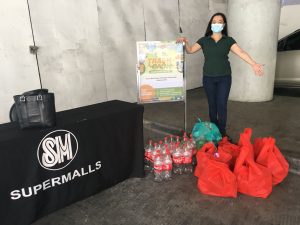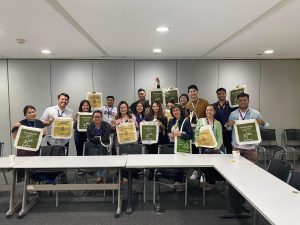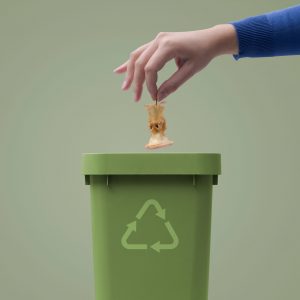The COVID-19 pandemic has changed the way we live and work. It forced many of us to stay at home for our health and safety.
As for the environment, researchers observed the mixed impacts of COVID-19. While the pandemic reduced greenhouse gas emissions, it was only temporary according to the United Nations Environment Programme. UN Secretary-General Antonio Guterres explains that despite economic slowdown, “we are still significantly off-schedule to meet the goals of the Paris Agreement.”
So how do we remain sustainable in the time of COVID-19?
How can we help the environment while cooped up at home?
1. Stay safe. Support environmental protection advocacies online.
While staying indoors, you may find more time to do things that matter most to you.
Take advantage of this time by learning more about sustainability through films, books, and participating in online discussions.
You may read these 3 books about sustainability.
You may watch these 5 Netflix documentaries about the environment.
Or you may want to learn more about corporate sustainability in the SM Sustainability School.
2. Learn new hobbies at home like mushroom growing
Next level plant enthusiasts are growing their own mushrooms at home.
Mushroom kit businesses like Grocycle and North Spore saw a 300-400% rise in their grow kit sales since the pandemic hit.
Even in the Philippines, various mushroom grow kits can be bought online from shops like JMP Mushroom, The Mushroom Project, or Mouldy Blooms.
Growing mushrooms is easy as it can be grown indoors- with a little space and a little time.
The best part is that they are plant-based and edible!
Not only will you find a new hobby, you will also save the environment by adding more plant (and less meat) to your diet!
3. Use a washable face mask
Masks help stop the spread of COVID-19.
Not only does it protect the wearer, it also protects the people we interact with.
However, typical face masks are made from multiple plastic fibers, that will remain in the environment for decades.
According to a study, a single face mask can release as many as 173,000 microfibers per day into the seas. It is also estimated that 3.4 billion face masks or face shields are thrown away each day.
To help reduce this, you may choose to wear a washable cloth mask made of natural plant fiber whenever possible.
Kultura offers proudly Filipino washable face masks. Go try them out!
Sources:
UNEP
National Geographic


